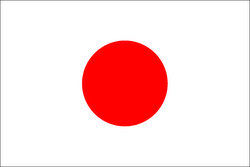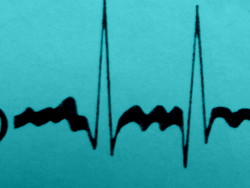 ‘Does acupuncture help with COPD?’ was the question asked by authors of a collaborative systematic review by universities in Barcelona and Beijing. Their analysis of data from 28 randomised trials showed that acupuncture added into patients’ usual treatment, improved difficulty breathing, quality of life, lung function and capacity for exercise, all when compared to sham treatment. The authors conclude that acupuncture might be beneficial for COPD, although the quality of trials was low and they would like to see further, well-designed studies undertaken.
‘Does acupuncture help with COPD?’ was the question asked by authors of a collaborative systematic review by universities in Barcelona and Beijing. Their analysis of data from 28 randomised trials showed that acupuncture added into patients’ usual treatment, improved difficulty breathing, quality of life, lung function and capacity for exercise, all when compared to sham treatment. The authors conclude that acupuncture might be beneficial for COPD, although the quality of trials was low and they would like to see further, well-designed studies undertaken.
(Filiform needle acupuncture for copd: A systematic review & meta-analysis. Complementary Therapies in Medicine, December 2019.)

 Researchers in the Department of Respiratory Medicine at a Japanese hospital, studying acupuncture for COPD (chronic obstructive pulmonary disease), have shown treatment is associated with improved exercise performance parameters. In the trial, 16 patients with COPD received acupuncture once a week for 12 weeks, in addition to any usual medication. The effects of treatment were evaluated at baseline and at 12, 16, and 24 weeks.
Researchers in the Department of Respiratory Medicine at a Japanese hospital, studying acupuncture for COPD (chronic obstructive pulmonary disease), have shown treatment is associated with improved exercise performance parameters. In the trial, 16 patients with COPD received acupuncture once a week for 12 weeks, in addition to any usual medication. The effects of treatment were evaluated at baseline and at 12, 16, and 24 weeks.  A French pilot study suggests that preoperative acupuncture administered to the ear, reduces the dose of drugs needed to achieve subsequent general anaesthesia. A total of 32 patients aged 18 to 65 awaiting elective digestive or gynaecological surgery, were allocated to receive either acupuncture or no acupuncture as a control group. Needles were retained for 20 minutes before administering conventional anaesthetics. The required dose was 18% lower in the acupuncture group. The study authors believe acupuncture may exert its effects in this case via the vagus nerve and parasympathetic nervous system.
A French pilot study suggests that preoperative acupuncture administered to the ear, reduces the dose of drugs needed to achieve subsequent general anaesthesia. A total of 32 patients aged 18 to 65 awaiting elective digestive or gynaecological surgery, were allocated to receive either acupuncture or no acupuncture as a control group. Needles were retained for 20 minutes before administering conventional anaesthetics. The required dose was 18% lower in the acupuncture group. The study authors believe acupuncture may exert its effects in this case via the vagus nerve and parasympathetic nervous system. Acupuncture combined with amiodarone, a standard anti-arrhythmic drug, seems more effective at preventing the recurrence of atrial fibrillation after ablation, than does the drug alone. A Chinese team randomised 85 patients into acupuncture and control groups. Both groups used the drug from day one after the ablation, but additionally the acupuncture group received daily needling for seven days afterwards.
Acupuncture combined with amiodarone, a standard anti-arrhythmic drug, seems more effective at preventing the recurrence of atrial fibrillation after ablation, than does the drug alone. A Chinese team randomised 85 patients into acupuncture and control groups. Both groups used the drug from day one after the ablation, but additionally the acupuncture group received daily needling for seven days afterwards. A Cochrane Database systematic review by Italian authors looking at acupuncture for prostatitis/chronic pelvic pain syndrome, has concluded that based on short term follow up, acupuncture reduces prostatitis symptoms in an appreciable number of participants compared with sham procedure. In an appreciable number of patients, it probably also decreases prostatitis symptoms when compared with standard medical therapy. In all, the authors examined 38 studies covering 3300 men, which made 23 comparisons between different treatment and lifestyle interventions.
A Cochrane Database systematic review by Italian authors looking at acupuncture for prostatitis/chronic pelvic pain syndrome, has concluded that based on short term follow up, acupuncture reduces prostatitis symptoms in an appreciable number of participants compared with sham procedure. In an appreciable number of patients, it probably also decreases prostatitis symptoms when compared with standard medical therapy. In all, the authors examined 38 studies covering 3300 men, which made 23 comparisons between different treatment and lifestyle interventions.